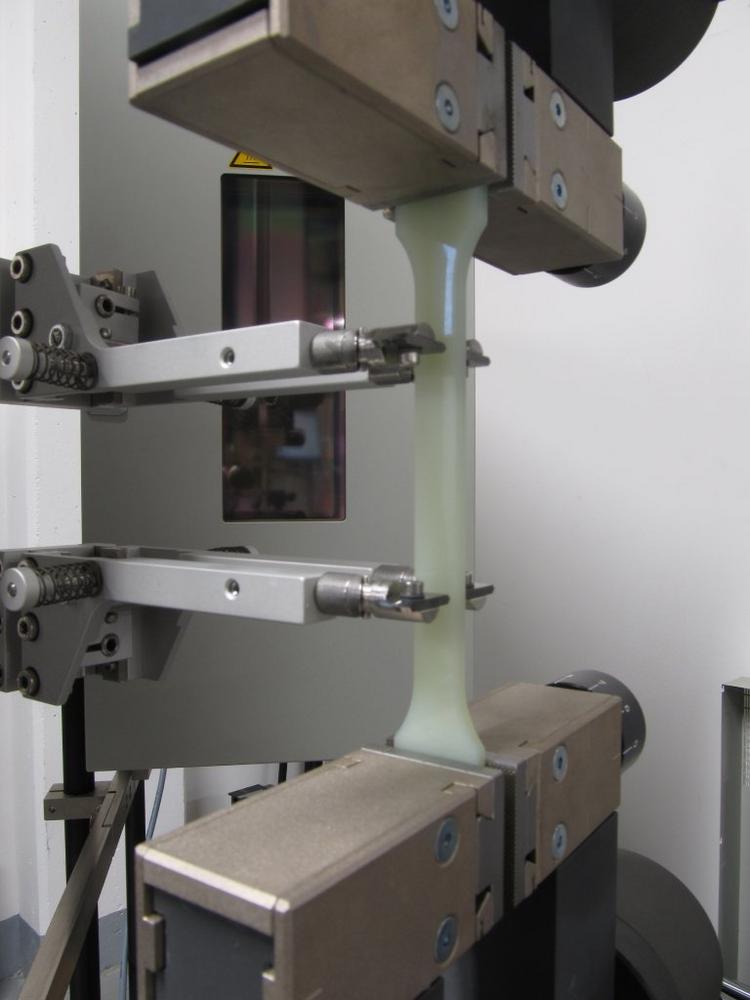Verifying the strength of plastic components remains a major challenge. This is particularly true when it comes to dimensioning for long-term cyclic loads, which frequently occur in demanding applications (e.g., in the automotive sector). There are various reasons for this: On the one hand, plastics exhibit significantly more complex material behavior than metals (viscoelastic, often anisotropic, numerous factors that reduce strength), and unlike metals (FKM guideline), there are no established rules for verifying strength. Secondly, suitable design parameters for long-term design are hardly available and can only be determined through extremely time-consuming and costly long-term tests (e.g., fatigue strength from Wöhler tests). Engineers are therefore usually forced to resort to simplified design approaches (e.g., flat reduction factors according to Oberbach or limit elongation according to Menges). Since these have generally not been determined for the specific material (under the respective operating conditions) or only provide rough value ranges, they carry the risk of unintentional over- or undersizing.
The SKZ Plastics Center has therefore launched a new research project on June 1, 2025. The aim is to develop an efficient testing and evaluation method that is capable of generating material properties for design in the area of fatigue strength with comparatively low testing, cost, and time expenditure on plastics. To this end, the test methodology of intermittent tensile tests is to be further developed and optimized in order to determine application-related material damage limits.
In order to prove the universal applicability of the new testing and evaluation concept, the methodology will be tested on numerous thermoplastics (amorphous/semi-crystalline, reinforced/unreinforced, brittle/ductile, etc.) in the research project. In addition, factors that reduce strength (e.g., anisotropy/fiber orientation, temperature, and humidity) will be directly taken into account in the testing. anisotropy/fiber orientations, temperature, and humidity) will be taken into account directly in the testing. The material design limits determined will then be classified and evaluated in comparison with other design methods for plastics (e.g., flat reduction factors according to Oberbach or limit elongation according to Menges) and results from long-term tests. At the end of the project, practical testing of the new testing and evaluation concept by companies in the project committee is also planned.
The kick-off meeting will take place online on July 16, 2025.
Other interested companies are welcome to contact SKZ to participate in the project committee and benefit directly from the research results.
More information on the research area Component Properties
The SKZ is a climate protection company and a member of the Zuse Association. This is an association of independent, industry-related research institutions that pursue the goal of improving the performance and competitiveness of industry, especially SMEs, through innovation and networking.
FSKZ e. V.
Friedrich-Bergius-Ring 22
97076 Würzburg
Telefon: +49 931 4104-0
https://www.skz.de
Expert Engineer | Component Properties
Telefon: +49 (931) 4104-147
E-Mail: k.engelsing@skz.de
Presse- und Öffentlichkeitsarbeit
Telefon: +49 931 4104-197
E-Mail: p.lehnfeld@skz.de
![]()

